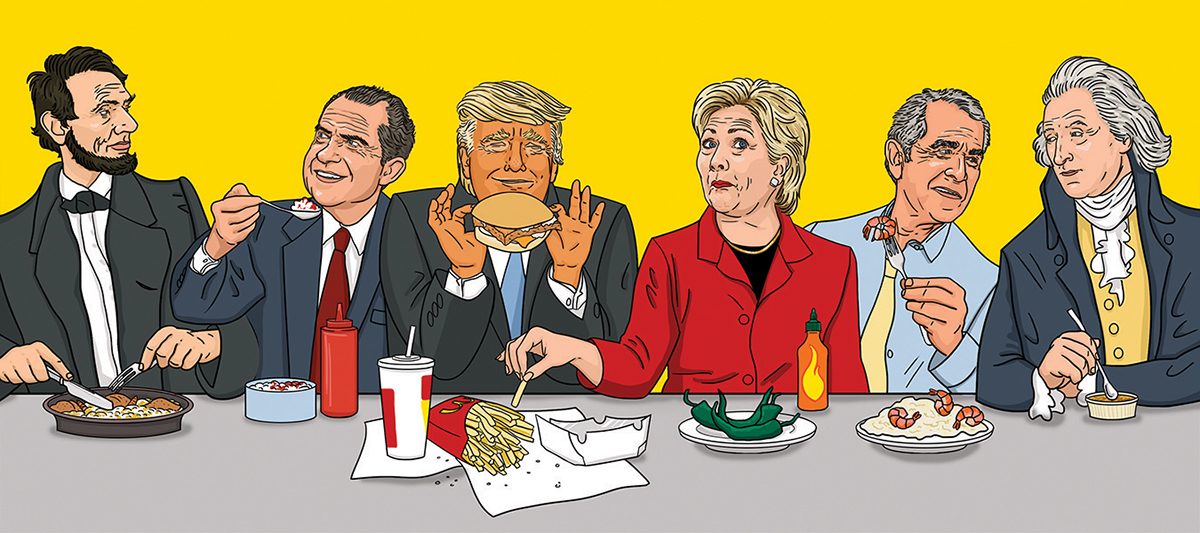Food & Drink
Power Hungry
A Towson professor talks about the politics of the presidential palate.
Donald Trump is a fan of McDonald’s Filet-O-Fish; Hillary Clinton loves Sriracha and eats a hot pepper daily. While one might say that all presidential nominees have voracious appetites, what they eat actually can be construed as a political issue. To shed some light on the politics of presidential foods throughout history, we caught up with Towson University art and culinary historian Nancy Siegel to talk about her upcoming book (and possibly soon-to-be TV series), Political Appetites: Revolution, Taste, and Culinary Activism in the Early Republic.
What messages are politicians sending when they eat on the trail? For example, Hillary Clinton was photographed eating a pork chop on a stick at the Iowa State Fair.
This idea of sharing food publicly is a way for politicians to insert themselves with the general public—it makes them human. It makes them relatable.
What are some of the fun presidential predilections you discovered in your research?
Sometimes we are equally concerned with what a president likes to eat as with what their policies are. We know that Richard Nixon liked ketchup on cottage cheese. George W. Bush loved spicy cheese grits with shrimp. Thomas Jefferson liked crème brûlée, and Abraham Lincoln liked fricassee of chicken. Following candidates through their stomachs is very popular.
In the subtitle of your book, which focuses on the 18th century, you use the term “culinary activism.” What does that mean?
Women became culinary activists, who offered recipes and cookbooks—it was a place for women to be heard. Although most women were not physical participants in the theater of war, many of these women I’m looking at lived through the American Revolution and the War of 1812. They would prepare these sweet treats such as Election Cake and Independence Cake for their guests in praise of the new and fragile nation. Cookbooks with these recipes became plentiful throughout the 19th century.
Did the recipes change over time?
Once we got past the first few decades after the Revolutionary War, and we had a sense that democracy was solid, we started to find a rise of interest in state, so you’ll find a lot of recipes in praise of state and local regions, like Nantucket Pudding or Vermont Sugar Cakes or Maryland Plum Pudding. Food is
a way in which we can trace what becomes important in America as the independent states become successful.
Is there a connection between a candidate’s political platform and what he or she eats?
Politicians are just as concerned about what goes out of their mouth as what goes in their mouth. They are very strategic about this. George Washington had a distillery—he was convinced that there should be distinct American liquor; Thomas Jefferson wanted to produce American wine that could rival the French. There’s a lot of national identity tied up with food and the ways in which we promote our country. Donald Trump is promoting himself with Trump Steaks. Maybe Hillary will promote herself through Clinton hot peppers or something like that. There might even be a new variety named after her should she win the election.
